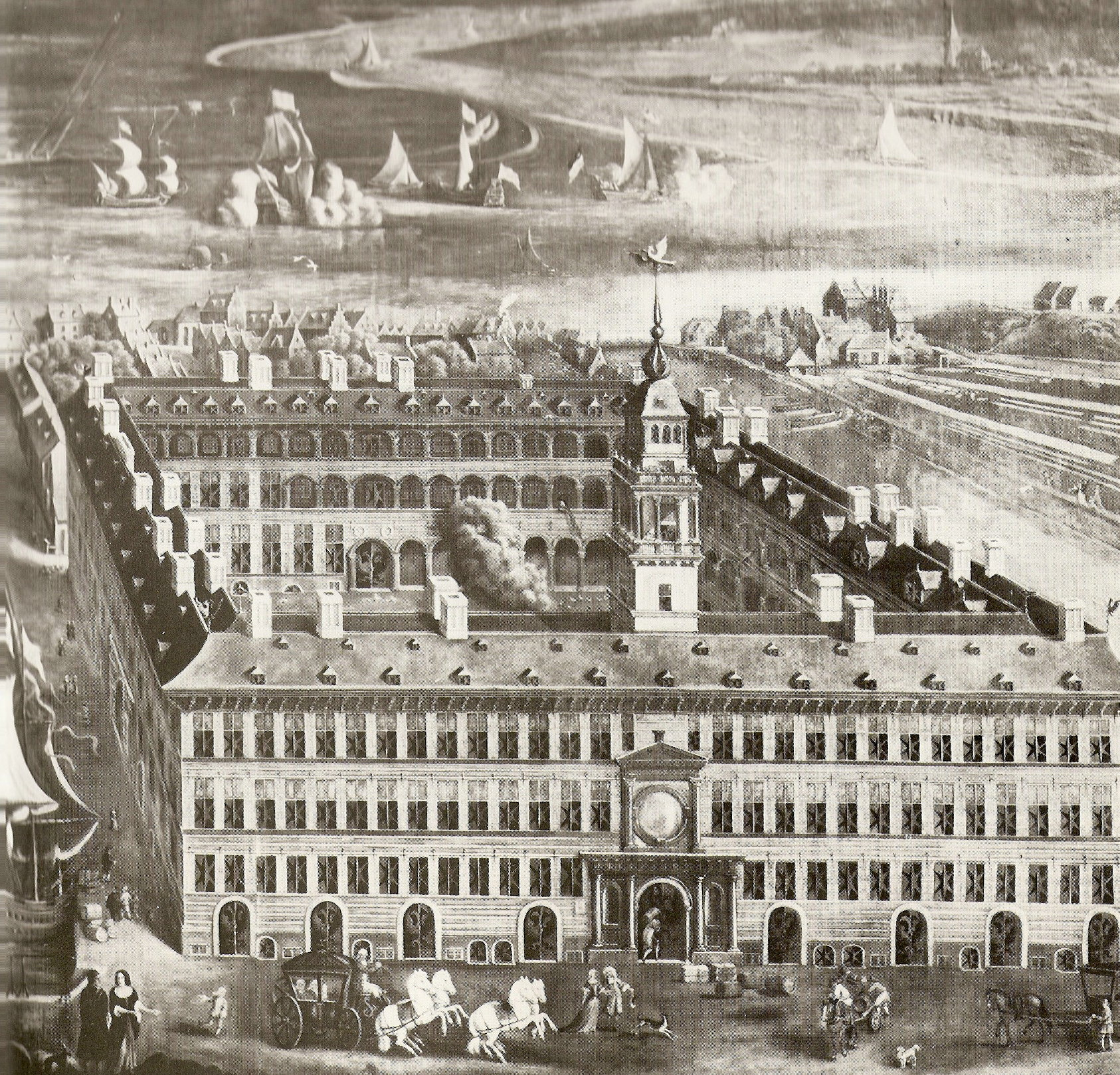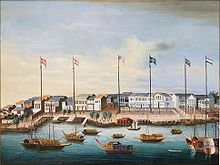Welcome to another Tinto Talks, the 25th one, the Happy Wednesday where we give you lots of information about our upcoming, still secret and unannounced game, with the codename of Project Caesar.
Today we delve into the mechanics of colonialism, another aspect of painting the map.
Power Projection
One important factor that has a big impact on the colonialism game is Power Projection. Each country has a power projection value, and it is primarily to allow a country to be able to exploit those with a lower power projection. Power Projection is very dependent on how advanced a country is, where each age has an advance that gives you about +10 of it. It is also modified by societal values, rank of the country and more. One important aspect is that the +10 advance for Age of Traditions is in the advance tree from the Meritocracy.
You do not gain Power Projection by doing specific actions, like in EU4, but it's entirely based on your country's current setup.

Sadly, the “Sweden is properly balanced” modifier has not been developed yet..
Colonial Charters
So, how does colonization work in ‘Project Caesar'? Well, you colonize by starting a colonial charter in a province for an upfront fee in gold. Then each month some of the population will be moving from the homeland to the colonial charter, until all locations that can be owned are owned by you.
In almost all cases, there are people living in a location you want to colonize, so for you to be able to have a charter to flip to your ownership there are a few rules. A location needs to have at least 1,000 people living there, and a certain percentage of the population needs to follow your state religion and be of an accepted culture of your country.

Progress for the sake of progress must be discouraged!
This percentage depends heavily on the difference in power projection of your country and the countries in the location. Yes, I said countries in plural, and next week you will understand what we are talking about. This has the implication that at the start of the game, Yuán could in theory start colonizing Europe, if it only had been closer and discovered. How the countries and pops already present in a location react to your colonization is something that will be clarified in a later Tinto Talks.
As long as you have a colonial charter, people from your owned locations will start moving to the locations in the colonial charter. The amount of people moving is rather low in the beginning of the game, but there are advances that will increase it in later ages. Societal values have an impact on it, and so does the distance to the colony.
One thing to take into account is that colonization does not magically create new pops out of thin air, and being able to create a huge colonial empire is not a feasible strategy as a low population country.

Full speed ahead! Only 40 months per location to get to 1,000 pops!
Colonial Charters are not free, and moving people are definitely not free, and countries need to support them. The higher the population in the target province, the more expensive it is to colonize, the distance also has an impact, but colonizing in the same area or region as your capital is significantly cheaper. You can always cut costs to your charters, but that will also reduce the amount of pops moving every month.

Not too expensive, so we can easily afford it..
Colonial Nations
When a colonial charter is finished, and all possible locations in that province have become yours, you have multiple options for what you want to happen to that charter. If the province is close, and you think you can get decent enough control over it, you may want to just keep the locations as a part of your home country. You also have the option to have the province form a new colonial nation, or have it join an adjacent colonial nation.
Colonial Nations are a subject type that can not be annexed, but has a few advantages, or disadvantages depending on your point of view, in that while they start transferring less gold than a vassal would, they also grant some manpower and sailors, while also giving part of their merchants to their overlord.
To clarify, you can make colonial nations anywhere on the map where you can colonize.
Supporting the Colonies
If you feel that your charters or colonial nations are not growing enough, there are two tools you can use in the cabinet. Both of these become available from advances in the Age of Discovery
With ‘Supporting a Colonial Charter’ you will move pops from a province you decide upon and to the colonial charter you decided. The amount of pops getting moved depends on your current colonial migration capacities, so when you use it you can about double the migration to a specific
With the ‘Supporting Colonies’ you can move 100 pops every month from a selected province to a target province in a colonial nation subject. This can be useful when you want to boost a colony and you have overpopulated provinces at home, or when you think your country would be in a better situation if you could expel some minorities.
Restrictions on Colonization
There are several ways which can block other nations from colonizing certain places, including diplomatic treaties. At the start of the game, Norrland, Finland, Karelia and Kola are under the claims of Sweden and Novgorod who have divided the area between them.
We also have the situation ‘Treaty of Tordesillas’ where the New World will be split among two Catholic powers, causing lots of interesting dynamics.
Next week we will be back to talk about the difference between countries, and why owning locations is not all there is to life…

And what is this teaser for next week about?
Today we delve into the mechanics of colonialism, another aspect of painting the map.
Power Projection
One important factor that has a big impact on the colonialism game is Power Projection. Each country has a power projection value, and it is primarily to allow a country to be able to exploit those with a lower power projection. Power Projection is very dependent on how advanced a country is, where each age has an advance that gives you about +10 of it. It is also modified by societal values, rank of the country and more. One important aspect is that the +10 advance for Age of Traditions is in the advance tree from the Meritocracy.
You do not gain Power Projection by doing specific actions, like in EU4, but it's entirely based on your country's current setup.

Sadly, the “Sweden is properly balanced” modifier has not been developed yet..
Colonial Charters
So, how does colonization work in ‘Project Caesar'? Well, you colonize by starting a colonial charter in a province for an upfront fee in gold. Then each month some of the population will be moving from the homeland to the colonial charter, until all locations that can be owned are owned by you.
In almost all cases, there are people living in a location you want to colonize, so for you to be able to have a charter to flip to your ownership there are a few rules. A location needs to have at least 1,000 people living there, and a certain percentage of the population needs to follow your state religion and be of an accepted culture of your country.

Progress for the sake of progress must be discouraged!
This percentage depends heavily on the difference in power projection of your country and the countries in the location. Yes, I said countries in plural, and next week you will understand what we are talking about. This has the implication that at the start of the game, Yuán could in theory start colonizing Europe, if it only had been closer and discovered. How the countries and pops already present in a location react to your colonization is something that will be clarified in a later Tinto Talks.
As long as you have a colonial charter, people from your owned locations will start moving to the locations in the colonial charter. The amount of people moving is rather low in the beginning of the game, but there are advances that will increase it in later ages. Societal values have an impact on it, and so does the distance to the colony.
One thing to take into account is that colonization does not magically create new pops out of thin air, and being able to create a huge colonial empire is not a feasible strategy as a low population country.

Full speed ahead! Only 40 months per location to get to 1,000 pops!
Colonial Charters are not free, and moving people are definitely not free, and countries need to support them. The higher the population in the target province, the more expensive it is to colonize, the distance also has an impact, but colonizing in the same area or region as your capital is significantly cheaper. You can always cut costs to your charters, but that will also reduce the amount of pops moving every month.

Not too expensive, so we can easily afford it..
Colonial Nations
When a colonial charter is finished, and all possible locations in that province have become yours, you have multiple options for what you want to happen to that charter. If the province is close, and you think you can get decent enough control over it, you may want to just keep the locations as a part of your home country. You also have the option to have the province form a new colonial nation, or have it join an adjacent colonial nation.
Colonial Nations are a subject type that can not be annexed, but has a few advantages, or disadvantages depending on your point of view, in that while they start transferring less gold than a vassal would, they also grant some manpower and sailors, while also giving part of their merchants to their overlord.
To clarify, you can make colonial nations anywhere on the map where you can colonize.
Supporting the Colonies
If you feel that your charters or colonial nations are not growing enough, there are two tools you can use in the cabinet. Both of these become available from advances in the Age of Discovery
With ‘Supporting a Colonial Charter’ you will move pops from a province you decide upon and to the colonial charter you decided. The amount of pops getting moved depends on your current colonial migration capacities, so when you use it you can about double the migration to a specific
With the ‘Supporting Colonies’ you can move 100 pops every month from a selected province to a target province in a colonial nation subject. This can be useful when you want to boost a colony and you have overpopulated provinces at home, or when you think your country would be in a better situation if you could expel some minorities.
Restrictions on Colonization
There are several ways which can block other nations from colonizing certain places, including diplomatic treaties. At the start of the game, Norrland, Finland, Karelia and Kola are under the claims of Sweden and Novgorod who have divided the area between them.
We also have the situation ‘Treaty of Tordesillas’ where the New World will be split among two Catholic powers, causing lots of interesting dynamics.
Next week we will be back to talk about the difference between countries, and why owning locations is not all there is to life…

And what is this teaser for next week about?




